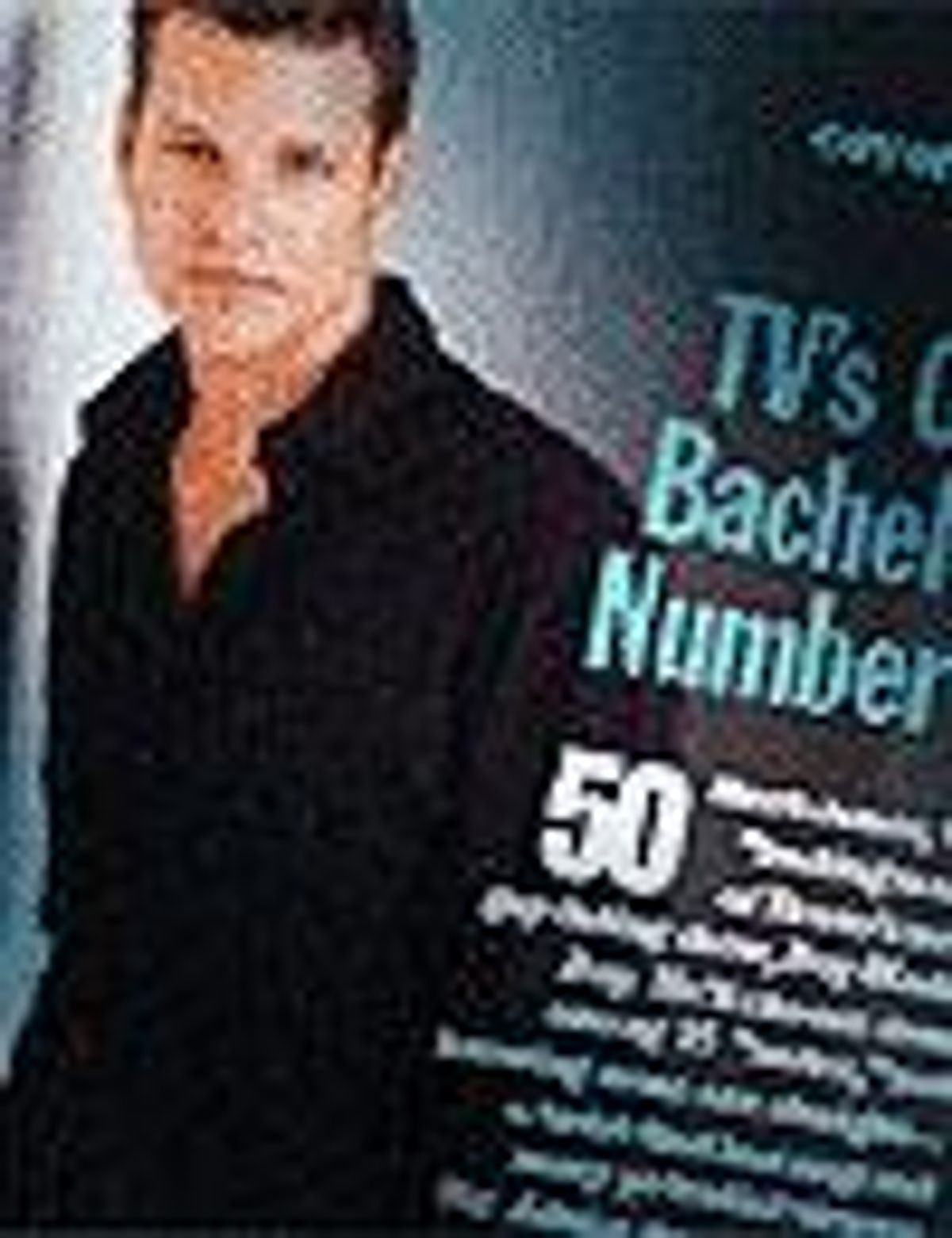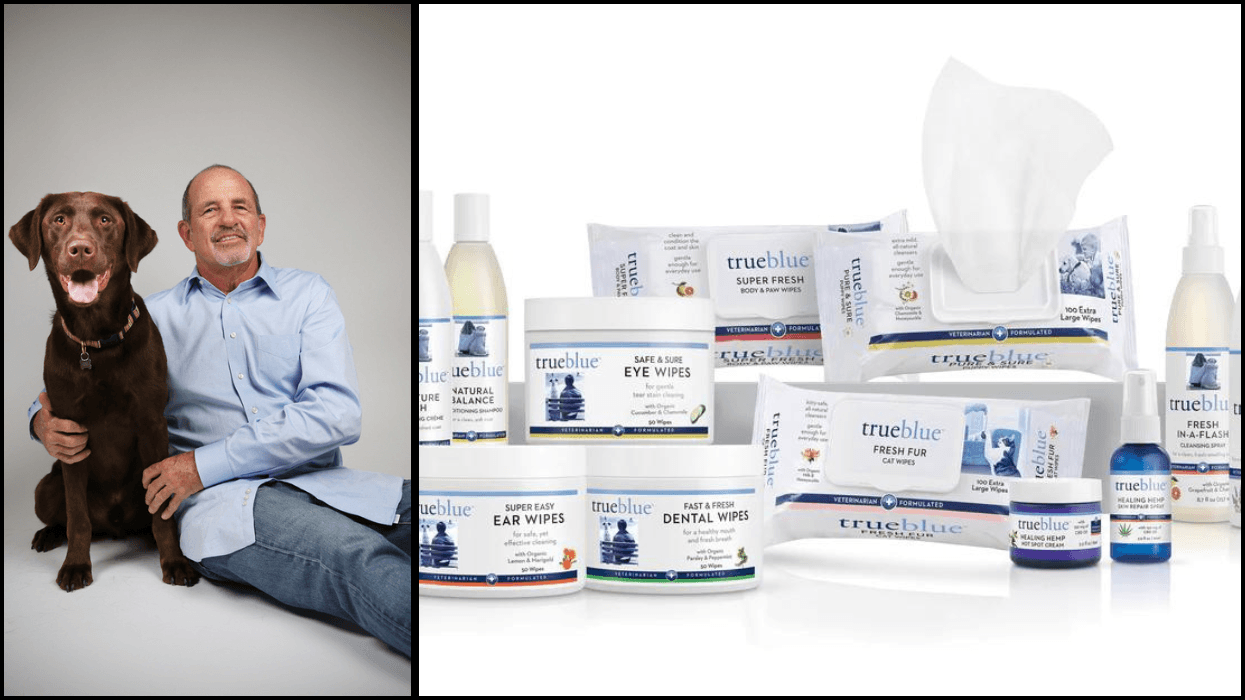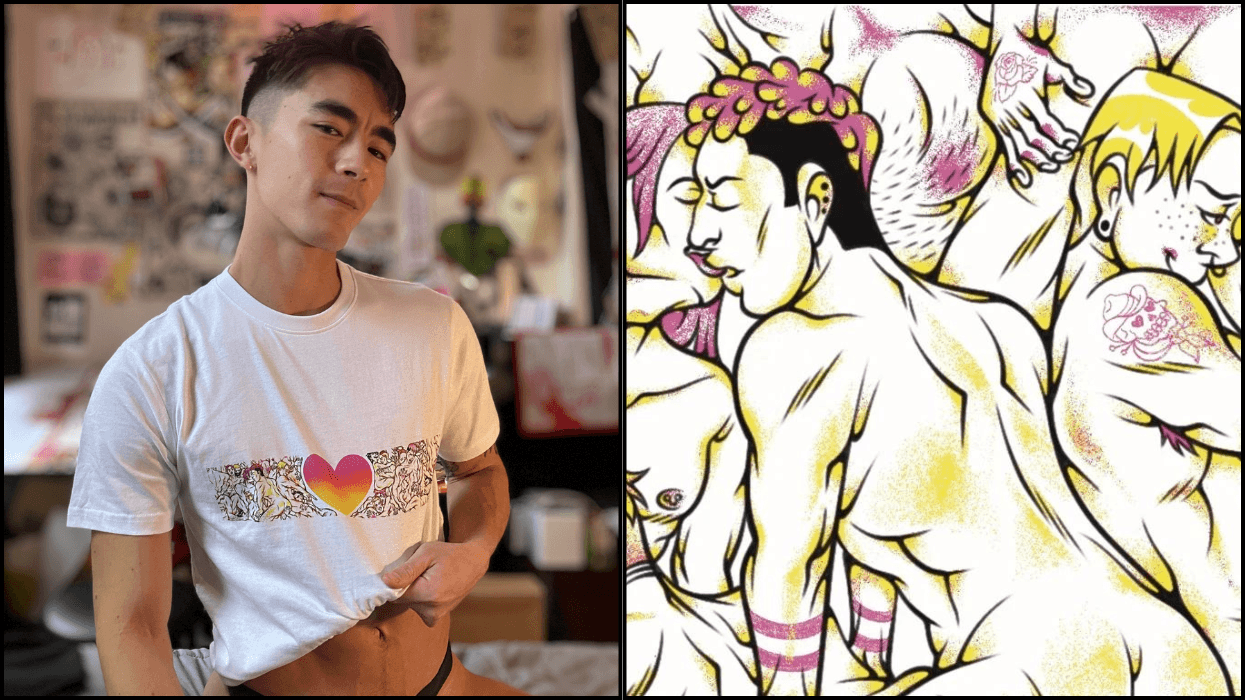
Meet reality TV's Gay Bachelor Number 1--and find out why some are concerned about the straight twist in Bravo's Boy Meets Boy
June 24 2003 12:00 AM EST
November 15 2015 6:16 AM EST
By continuing to use our site, you agree to our Private Policy and Terms of Use.

Meet reality TV's Gay Bachelor Number 1--and find out why some are concerned about the straight twist in Bravo's Boy Meets Boy
Surprises on reality television are so cheap and common these days that most new twists and turns generate little more than a cynical chuckle from seasoned viewers. So when word leaked out in May that the Bravo cable network was producing a new dating-themed reality series about a gay bachelor choosing the perfect boyfriend from among 15 eligible men, it sounded like simply a queer take on a preexisting idea.
But in a move worthy of Joe Millionaire, Boy Meets Boy takes the surprise factor one step further, because neither the "leading man" nor his best gal pal nor all of the 15 potential boyfriends--called "mates"--know that sprinkled among them are some heterosexual contestants. Initial reaction has been polarized, with one overriding question: Will this be a groundbreaking portrayal of gay romance on television or a sordid example of setting up gays as the butt of one big, degrading prank?
"In some ways, [Boy Meets Boy] has the potential to kind of subvert the whole notion of how people conceive of lesbians and gay men," observes Stephen Tropiano, author of The Prime Time Closet: A History of Gays and Lesbians on TV, who sees the show as a natural outgrowth of gays' presence in television.
Tom Shales of The Washington Post agrees: "On the surface it would seem like a healthy development, on the grounds that visibility is healthy." However, with this praise Shales adds a note of concern that's common among many who hear of the straight twist. "We don't know how much ridicule or derision is going to be a part of it," he says, "so a lot depends on how it's done, whether it's going to be leering or above board."
Airing in July and August, Boy Meets Boy is hosted by Extra's Dani Behr and was shot in May in Palm Springs, Calif. The show features handsome leading man James (the participants' last names are omitted), 32, who works in human resources at a major Los Angeles law firm. What drives an obviously attractive, successful gay man to subject himself to what some consider a very wide-reaching video dating service? James, who came out at 22 while in college, explains, "I tend to meet guys who are interested in sex first and then maybe something more if the sex is good." That said, James wanted to challenge himself, better understand what he wants in a relationship, and affirm his values as a modern gay man. He also wants America to see that the caricatures on most scripted television shows don't accurately represent gay culture. "We are normal people with normal jobs [and] normal friends, looking for love and happiness just like everyone else," he says.
Not that everyone thinks that normalcy is what's going to come across on Boy Meets Boy. "It sounds more like How to Date a Hustler, because the motive [of the contestants] is to be emotionally and physically attractive to the gay guy," observes Brad Gooch, author of Dating the Greek Gods. "The straight guy is trying to act like trade in this case."
Confining the other 15 singles in one house sounds like the makings of a gay porn video, notes Derek Hartley, who dispenses relationship advice at PlanetOut.com's "FantasyMan Island." "The only reason I would watch the show is to see the 15 bachelors ignore the lead guy and hook up with one another," he says with a laugh. But Hartley and viewers like him may be disappointed.
For one thing, also living in the house will be James's longtime best friend, Andra--a married heterosexual woman who's there to help James choose. "What was amazing about James and Andra right from the start was their rapport," notes supervising producer Kirk Marcolina. "They were finishing each other's sentences right from the get-go and really had that relationship we were looking for." This dynamic, so indicative of the relationships of many gay men and their straight women friends, should help provide a hook for straight viewers while giving the show some oomph.
James affirms his friend's importance. "Andra was the voice behind many of the decisions," he says. "If she wanted me to keep a mate, I did. If she wanted me to have a one-on-one date with a specific mate, I did."
And if Andra's presence isn't enough to be a cold shower for the mates, the only physical connection allowed on Boy Meets Boy is kissing. "We didn't want this show to be a big sexual romp and for it to be salacious," explains openly gay executive producer Douglas Ross, who created the show with Tom Campbell, his production partner at Evolution Film & Tape. (Evolution was also behind last year's acclaimed, gay-positive Bravo series Gay Weddings.) "We very specifically designed this show to challenge the viewer's preconceived notions about what it means to be gay and to be straight. We really wanted it to be an exploration of sexual politics and not sex."
While this kissing rule protected the straight contestants from being asked to put out, it also raises the question of whether gay men know how to court one another without sex being involved. "Of course they can," James says, but he's quick to add that he believes men in general are more sexual than women. "Straight men would have sex the first night if women would let them. It is no different in the gay world."
The natural assumption concerning the straight twist is that James or the other gay contestants will be able to spot the impostors in an instant. As James attests, "Gay men look at men the way straight men look at women. That is a dead giveaway." In Boy Meets Boy, the producers promise, the mystical homosexual power known as gaydar fails, and some delicious complications ensue.
"If it were just a gay dating show, for sure we'd get a lot of gay viewers, probably not that many straight viewers, [and] some looky-loos," Ross says. "But we felt by putting [the twist] in, we would get a much broader audience and have a chance to explore the sociological issues which are really important to us as gay producers." Adds Scott Seomin of the media watchdog organization Gay and Lesbian Alliance Against Defamation: "Frankly, only a reality show could create a closet for straight men. We hope the closeted heterosexuals in the cast will learn what it's like to be gay."
Since gay images on reality TV have become something of a stale staple--lately failing to match the excitement generated by, say, Pedro Zamora and Richard Hatch--it's promising that Boy Meets Boy promises to shake up concepts of sexuality. Take it as a good sign, then, that within hours of the show's announcement, Andrea Lafferty of the right-wing Traditional Values Coalition was quoted by the Associated Press as saying, "Clearly, they've hit a new low. What's next after Boy Meets Boy? Boy Meets Sheep?" Psychotherapist Betty Berzon, whose autobiography, Surviving Madness: A Therapist's Own Story, just won a Lambda Literary Award, welcomes such controversy. "Groups like this do [gays and lesbians] a favor by keeping us in the public mind and giving us a visibility that we don't always do for ourselves," she says.
And while everyone at Boy Meets Boy seems to be approaching the concept with the best of intentions, the show's methodology doesn't necessarily sit well even with potential allies. "It's my understanding that if the gay guy picks the straight guy in the end, the joke is on him, and I don't like that," observes Berzon. (According to Ross, if James chooses a gay mate, he and the suitor win a romantic vacation, but if a straight guy is chosen, they win a "very small" cash prize.) PlanetOut's Hartley is also skeptical. "If what they want to do is make a documentary or explore social issues, they should do that," he says. "What makes reality shows work is the delight in seeing people devolve to horrendous behavior toward one another. That's what we're watching for."
There's horrendous behavior, and then there's homicidal. Boy Meets Boy's gay-straight romantic dynamic has been a queasy reminder for some of the Jenny Jones show's disastrous same-sex secret-crush episode in 1995, in which Scott Amedure, a gay man, surprised his heterosexual friend Jonathan Schmitz by professing his attraction to him. "[Schmitz]'s response was anticlimactic," explains Jeffrey Montgomery, executive director of the Triangle Foundation, an antiviolence project dealing with victims of bias crimes throughout Michigan. "[Schmitz] laughed it off and said, 'You're a nice guy and I like you,' and then went home," only to fatally shoot Amedure three days later at Amedure's home in the suburbs of Detroit.
Violence is not a likely scenario for Boy Meets Boy, argues Larry Grimaldi--who, along with Christopher McDonald, cast the show--because the heterosexual contestants knew exactly what was in store. "Many of the questions we asked [the straight participants] were geared to ascertain their social behaviors, political views, and friendships," he says. A solid pool of applicants, all with gay best friends and relatives, were then told about the twist and concept behind the show, and they quickly signed on. "We didn't want them to put on any affectations or try to 'be gay,' " Ross adds. "We just wanted them to change the story about their sexual identity."
Be that as it may, the premise of Boy Meets Boy worries many gay men. What if the show ends with James rejecting all of the gay contestants? Would this support the right-wing stereotype of the self-loathing, predatory homosexual male? Ross notes that during their private confessionals, the straight contestants make it clear that they don't feel preyed on. "If anything, it's going to help dispel that myth [by showing] that gay men and straight men can be friends," he says. "They can bond on a lot of different areas, and it's not just because a gay guy might be sexually attracted to somebody."
Gooch points out that, far from being new, the mix of gay and straight men on Boy Meets Boy represents a return to age-old roots. In ancient Greece men like Socrates were married and yet had homosexual relationships as well. "So our society at the moment is rolling the dice, instigated by gays, to reconsider what masculinity is and what makes a straight man or gay man, and if these definitions are real or if a middle ground can be found," says Gooch.
Howard Buford, founder and CEO of Prime Access, an ad agency that serves more Fortune 500 companies than any firm in the gay market, believes that protests by the Traditional Values Coalition or other right-wing organizations could ultimately prove beneficial to Boy Meets Boy. "The actual promotion for Boy Meets Boy isn't widespread, but if it were to hit CNN, suddenly it generates a much higher awareness, and it could increase viewership," he says. As for a backlash against advertisers, Buford says those days are over: "There's so many active Fortune 500 companies in the gay market, it's just become untenable to boycott them."
Ross and his team told all of the participants to be ready for surprises and have fun, which Berzon believes is exactly the right approach to dating in general. "I think people take dating too seriously," she says. "They approach it like a life-or-death situation, asking if this is 'the one' when they barely know the person's name."
James shares Berzon's laid-back approach to romance. He's had only two relatively long-term relationships, and he's never felt like his life is missing something because he's single. "I do feel like there could be something more in my life," he says, "but I am content being single until that special someone comes along." And that special someone might be just an episode away.
Want more breaking equality news & trending entertainment stories?
Check out our NEW 24/7 streaming service: the Advocate Channel!
Download the Advocate Channel App for your mobile phone and your favorite streaming device!

